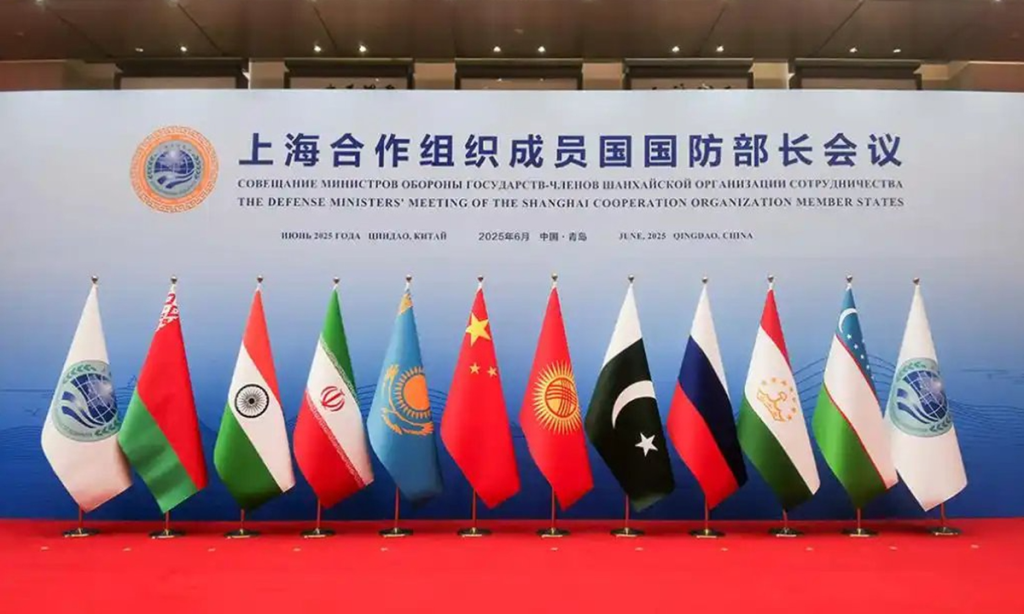Counterterrorism and Limits of SCO
DIDPress: Observer Research Foundation (ORF) reported that on June 26, 2025, the 22nd meeting of the Shanghai Cooperation Organization (SCO) Defense Ministers was held in Qingdao, China, attended by nine member states, three observer nations, and 14 dialogue partners.

Indian Defense Minister Rajnath Singh refused to sign the joint statement because it made no mention of the horrific terrorist attack in Pahalgam. Instead, the statement referred to insurgent activities in Balochistan, which could undermine New Delhi’s stance on terrorism and regional security within the SCO framework.
Although security and counterterrorism have been core objectives of this regional group since the formation of the “Shanghai Five” in 1996, recent disagreements in these areas have weakened the “Shanghai Spirit.” Moreover, some member states have covertly supported terrorist activities, turning the region into an expanding hub for terrorism.
After the Taliban’s rise to power in Afghanistan in 1996, the Shanghai Five focused on combating terrorism, extremism, and separatism. In 2001, with the addition of Uzbekistan, the Shanghai Five evolved into the SCO. At the inauguration of this multilateral organization, Kazakhstan’s President Nursultan Nazarbayev called Afghanistan the “cradle of terrorism, separatism, and extremism.”
The SCO’s counterterrorism policy was institutionalized and strengthened through the Regional Anti-Terrorist Structure (RATS) Executive Committee, one of the organization’s two permanent bodies. RATS is tasked not only with countering terrorism but also with supporting member states by training security forces for counterterrorism operations and gathering intelligence on terrorist groups.
Before RATS expanded its membership, the SCO was effective in its counterterrorism efforts. Between 2011 and 2015, the body prevented 20 terrorist attacks, dismantled 440 training camps, arrested over 2,700 extremists from various groups, and eliminated another 1,700. Through RATS, member states extended their counterterrorism efforts to combat drug trafficking, as narcotics smuggling had become a major source of funding for anti-state and terrorist activities.
India and Pakistan became full SCO members in 2017 after being observers since 2005. New Delhi has consistently emphasized counterterrorism efforts within the group, highlighting state-sponsored terrorism and its impact on regional peace and security. In contrast, Pakistan has used state-sponsored terrorism as a tool in its foreign policy against neighboring rivals, often distinguishing between “good” and “bad” terrorists.
Growing disagreements have made the SCO region more vulnerable to terrorism and violence.
Disputes and Terrorism
Divisions and the covert support of terrorism by some SCO members have left the region increasingly exposed to terrorist attacks and geopolitical tensions. Terrorist groups such as the Islamic State Khorasan Province (ISKP) have expanded their influence in the region. Using various recruitment methods, they have carried out large-scale attacks, with their estimated strength ranging between 1,500 and 4,000 fighters.
In 2024, Iran and Russia experienced the deadliest ISIS attacks in their history.
Conclusion
While the SCO was formally established to promote regional peace, security, and counterterrorism, structural weaknesses among some members have increased the organization’s vulnerability to internal disputes and exposed its divisions. The SCO lacks an effective enforcement mechanism to implement the counterterrorism objectives outlined in its charter. The struggle for influence within the organization has hindered its ability to play a meaningful role in maintaining security, peace, and countering terrorism in the region.